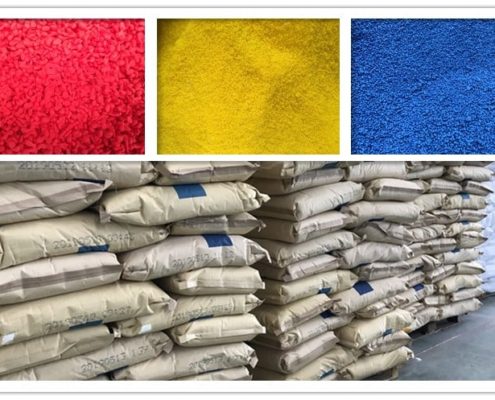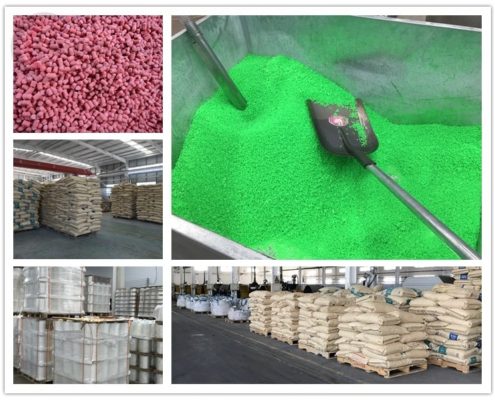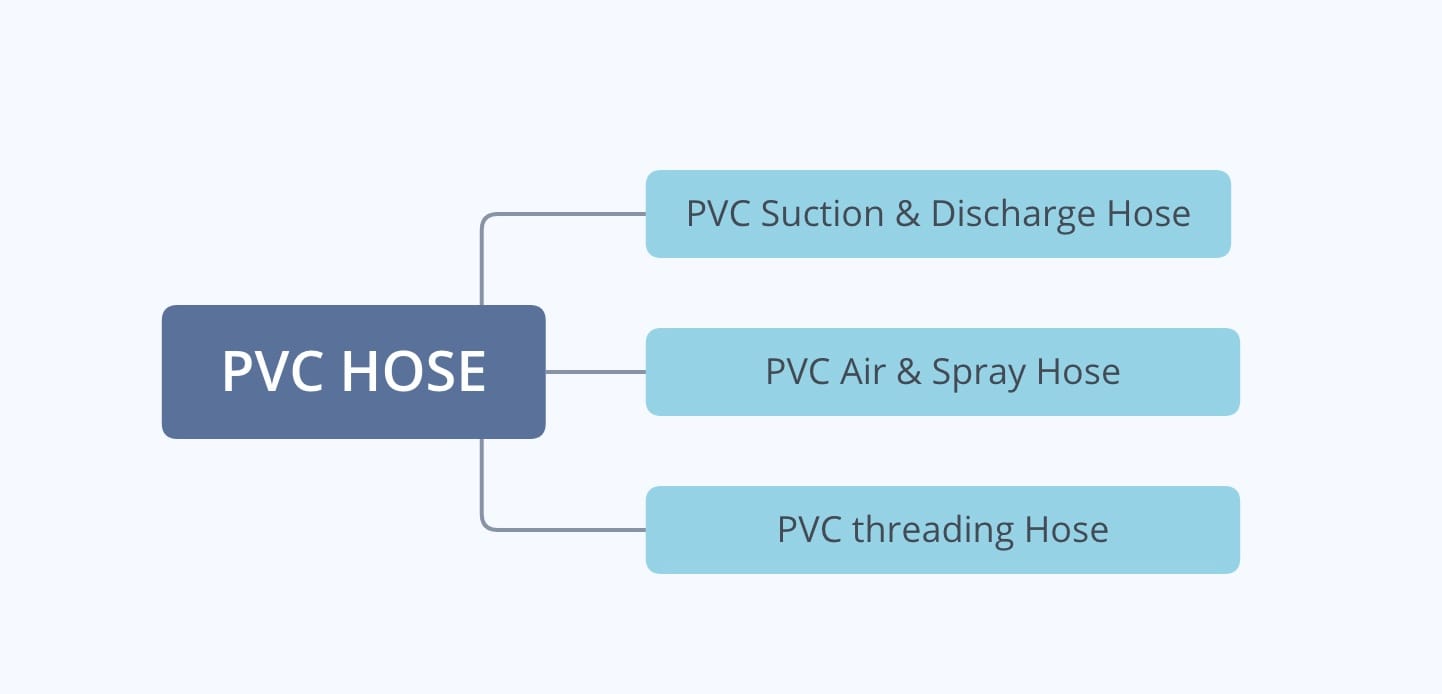What is PVC Hose?
PVC) is possibly the most versatile product from the chemical industry. It’s used extensively in construction from siding to wire insulation, to window frames to the pipe. With the addition of a plasticizer, the compound becomes quite flexible and excellent material for clear tubing
Polyvinyl chloride (PVC) is a thermoplastic polymer produced by the polymerization of vinyl chloride and has replaced rubber in many applications. It is lighter and less expensive than rubber and contains less petroleum than most other polymers. PVC hose is the tubing made from PVC material.
vinyl chloride was exposed to sunlight and changed to a solid through a process now known as polymerization
PVC hose became popular in the 1960’s and is commonly found in agriculture, manufacturing, the food industry, construction, and everyday household products. Farmers use screw suction and steel suction PVC hose to spread fluids and chemicals, for irrigation lines, and as transfer hoses for grains, feeds, powders, gas, and fuel. Hydraulic PVC hoses can be found in machine shops and manufacturing plants. For high-pressure applications, PVC hose may be reinforced with wire.
Material of PVC Hose
PVC hoses are typically composed of a PVC inner tube, reinforcement layers, and an outer cover. The inner tube provides a smooth passage for the flow of fluids, while the reinforcement layers, which can be made of polyester, nylon, or steel wire, enhance the hose’s strength and durability. The outer cover protects the hose from abrasion, weathering, and other external factors.
PVC Hose pipes are classified according to their use
Types of PVC Hoses
There are several types of PVC hoses available, each designed to meet specific requirements. Some common types include:
1, Garden Hoses
Garden hoses are lightweight and flexible, commonly used for watering plants, cleaning outdoor spaces, and filling pools or containers.
2, Suction Hoses
Suction hoses are used for transferring liquids or solids by suction, making them ideal for applications such as pumping water from wells or transferring chemicals.
3, Braided Hoses
Braided hoses are reinforced with a layer of braided polyester or nylon, providing increased strength and resistance to pressure. They are commonly used in water supply systems and irrigation.
4, Air Hoses
Air hoses are designed for pneumatic applications and are capable of withstanding high pressures. They are widely used in industries such as construction, automotive, and manufacturing.
Applications of PVC Hoses
PVC hoses find applications in various industries due to their versatility and excellent performance characteristics. Some common applications include:
a. Water Transportation
PVC hoses are extensively used for transporting water in residential, commercial, and agricultural settings. They are used in irrigation systems, sprinklers, and water supply networks.
b. Chemical Transfer
PVC hoses are resistant to a wide range of chemicals, making them suitable for chemical transfer applications. They are commonly used in industries such as manufacturing, agriculture, and laboratory settings.
c. Vacuum Systems
PVC suction hoses are widely used in vacuum systems for applications such as cleaning, waste removal, and material handling.
d. Compressed Air
PVC air hoses are employed in various industries that require compressed air for powering pneumatic tools and machinery.
Benefits of PVC Hoses
PVC hoses offer numerous benefits that contribute to their widespread usage. Some key advantages include:
1, Durability
PVC hoses are known for their durability and can withstand demanding conditions. They are resistant to abrasion, impact, weathering, and most chemicals, ensuring a long service life.
2, Flexibility
PVC hoses are highly flexible, allowing for easy handling and maneuverability in different applications. They can bend without kinking, making them convenient to use in tight spaces.
3, Cost-Effective
Compared to other types of hoses, PVC hoses are often more affordable, making them a cost-effective choice for various industries and applications.
4, Lightweight
PVC hoses are lightweight, making them easy to transport and install. This characteristic is especially beneficial for garden hoses and portable applications.
Common FAQs about PVC Hoses
Q1: Can PVC hoses be used for drinking water?
Yes, PVC hoses that are specifically designed and certified for drinking water applications can be used safely.
Q2: Are PVC hoses suitable for high-pressure applications?
PVC hoses have varying pressure ratings depending on their construction. It is important to choose a hose that is rated for the desired pressure range.
Q3: How long do PVC hoses last?
PVC hoses have varying pressure ratings depending on their construction. It is important to choose a hose that is rated for the desired pressure range.
Q4: Can PVC hoses be used for conveying oil or gasoline?
PVC hoses are not recommended for applications involving oil or gasoline. They are better suited for water, air, and non-hazardous chemical transfer.
Q5: Can PVC hoses be repaired if damaged?
Minor damages in PVC hoses can often be repaired using appropriate repair kits. However, severe damage may require hose replacement.




 sunhose
sunhose sunhose
sunhose